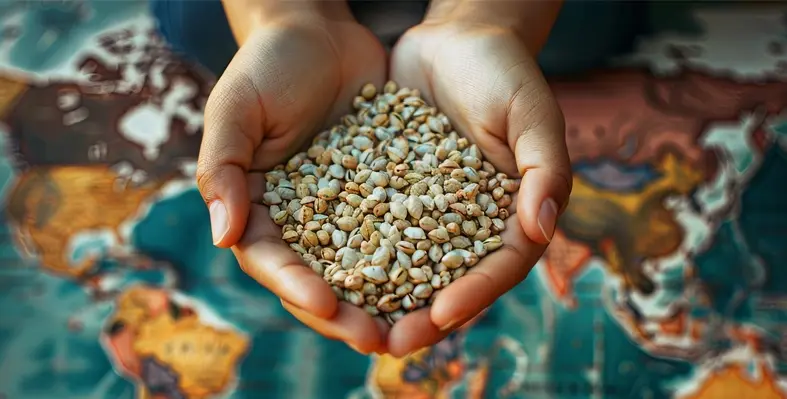In an attempt to strengthen global food security, Agriculture Secretary Tom Vilsack announced that the US Department of Agriculture (USDA) would be investing US$466.5mn through its two premier international development programmes
The announcement which was made at the Clinton Global Initiative 2024 annual meeting, Vilsack explained about the McGovern-Dole International Food for Education and Child Nutrition Programme which would be allocated US$248mn in fiscal year 2024 to support projects in nine countries that will provide critical school meals and boost literacy and primary education, especially for girls. On the other hand, the Food for Progress programme would be provided with US$218.5mn to help seven countries strengthen their agricultural systems, adopt climate smart technologies, sustainably increase productivity and expand international trade.
Under both programmes, USDA purchases US-grown commodities and provides them to implementing organisations, including the United Nations World Food Programme. Food for Progress implementing partners sell the commodities locally and use the proceeds to support local development projects. McGovern-Dole partners use the commodities directly in school feeding programmes.
This year, USDA will provide more than 37,000 mt of US commodities to support projects in Angola, Bangladesh, El Salvador, Ethiopia, Guatemala, Guinea-Bissau, Laos, Malawi and Rwanda, benefitting approximately 1.2 million children and their family members in more than 2,800 pre-primary and primary schools.
The Food for Progress projects funded this year will utilize 315,000 mt of US commodities and ultimately benefit nearly 200,000 farmers in Benin, Cambodia, Madagascar, Rwanda, Sri Lanka, Tanzania and Tunisia and will focus on priority topics including climate-smart agriculture, food security, sanitary and phytosanitary standards, access to capital and trade facilitation.
“The McGovern-Dole and Food for Progress programmes are the embodiment of USDA’s multi-faceted approach to combatting hunger and poverty and addressing the effects of the climate crisis worldwide,” Vilsack said. “Teaming up with both private- and public-sector partners, we’re not only providing direct food assistance, but also fostering sustainable agricultural productivity growth, promoting climate-smart agriculture and enhancing developing countries’ ability to engage in trade, which is critical to food security.”





